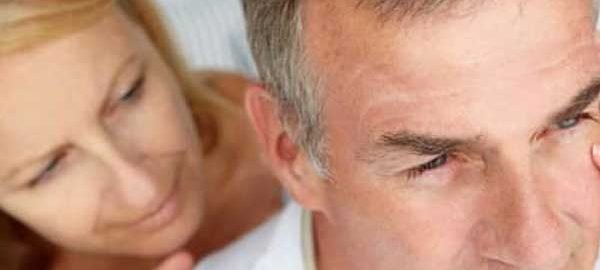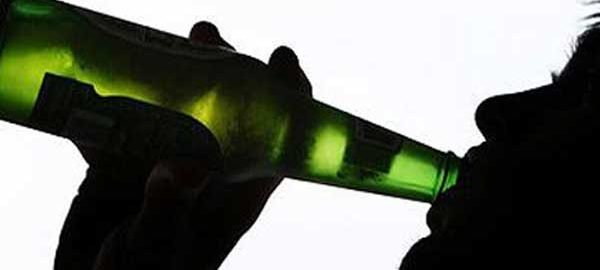The penis is one of the organs that make up the male reproductive system. There is currently significant social pressure on the size of this member.
Within the male reproductive system or apparatus the penis is the most important organ; At least socially speaking. There are many techniques and methods used to lengthen the male limb, although several of them are not at all effective or beneficial to health.
Likewise, although all penises share the same anatomical parts and functions, not all are equal in size and shape. That is why they are classified into different types.
In the following article, a sexologist in Delhi explains what the penis is, what parts it has and what functions each of them performs, as well as what types of penises exist. Finally, we will check if its elongation is possible and what are the most common methods.
What is the penis?
The penis is an organ of the male reproductive system, and it is also the external organ of the urinary tract. In most cases, this member usually has a flaccid form, and it is until sexual arousal occurs when it enlarges and becomes an erect penis.
In relation to the erection, this occurs because during sexual arousal the internal tissue increases. The latter as a result of the same tissue is filled with blood.
This is how this sexual organ stays hard and makes intercourse possible. When, despite being exposed to supposedly exciting stimuli, an erection is not produced, we talk about a possible erectile dysfunction, which has very different causes, from psychological to physiological.
Finally, ejaculation occurs when a man reaches orgasm and expels semen. This can be triggered by oral sex, intercourse – anal or vaginal – or masturbation. Through the practice of tantric sex, orgasm can be delayed and even occur in the absence of ejaculation. This is also known as “dry orgasm.”
The average size of this organ
The normal penis size, or rather, the average size (the one that most men usually have), ranges between 12 and 16 centimeters during erection. That is, the average penis size, presented by about 80% of men when they have an erect penis is usually between that measure.
However, it should be stressed that in its flaccid form there are many disparities in the measures of this member.
And how much is the maximum that this member can get to measure? Well, according to the Guinness Book of Records, the largest penis in the world is 48 centimeters and belongs to a Mexican, followed by an American actor and writer with a penis of 34 centimeters.
Parts of the penis and functions
As with any organ, the penis and the male reproductive system are made up of different parts and each one fulfills a certain function. Sexologist in Delhi explains below what these parts and functions are.
Within the male genitals, the human penis is composed of three pillars:
two corpora cavernosa that are next to each other, in the superior or dorsal part of the penis.
a spongy body, which is on the bottom or on the ventral side of the same member.
These tissues retain arterial blood during sexual arousal and cause an erection to occur.
In addition, the structure of the external male reproductive system is mainly composed of the 5 elements described below:
1.Glade
The glans is a bulbous tissue that is also known as the head of the member since it is at the end of it. It has a high concentration of nerves and that is why it is said to be the most sensitive part of the penis.
In the glans is the opening of the urethra, which is where urine, semen, and pre-seminal fluid come out.
2. Foreskin
The foreskin is a kind of elastic skin that covers and protects the tip of the male reproductive organ in its flaccid state. It retracts during the erection to expose the glans. Circumcised penises do not have this skin because they are operated and removed.
3. Scrotum
The scrotum is located at the base of the penis and is defined as an outer sac that contains within the testicles. Its temperature is usually 3 to 4 ° C (being lower than the temperature of the human body) so that healthy sperm can be produced.
4. Bridle
The frenulum is a part of the foreskin that meets the back of the glans. It is located below the head of the member and has a “V” shape. It is usually a very sensitive part that can even break during intercourse.
5. Trunk
The trunk of the penis extends from the tip of the penis to the area that connects to the abdomen. Inside it is the urethra. There are different shapes, such as curves or straight.
Types of the penis (size and shape)
Like female genitalia, there are many types of male sexual devices, with different shapes and sizes. Each of them is characterized by something in particular, which may be important for a better or worse sexual experience, although not necessarily.
Next, we will see the 8 most common types of penis.
1. Circumcised penis
In this case, the main feature is that the foreskin (the skin that protects the glans) has been removed by an operation. Most men usually have it this way.
As something to highlight about this type of penis is that they are usually quite sensitive because they do not have the foreskin. It is important to stimulate especially the glans in these cases.
2. Without circumcision
Unlike the previous one, the uncircumcised penis has intact the skin that covers the limb. At the time of erection, the foreskin is stretched and can be easily stimulated by raising and lowering this skin.
3. Curved or crooked penis
It has a curved shape, either up, down or to a specific side. It is normally said that it is ideal for stimulating the female G-spot. However, if your curvature is too pronounced it can be somewhat painful during intercourse.
When they are extremely curved they are known as Peyronie’s Syndrome.
4. Micropenis
The micropenis is a physical condition characterized by an abnormally small size of the male sexual member. Approximately its length in its flaccid state is around 2 centimeters. And on the other hand, when it is erect, it does not reach 7 centimeters.
If diagnosed correctly, there are medical treatments for proper management in micropenis cases such as testosterone administration.
5. Thick or fat penis
Obviously the size is not only determined by the length, but also by the width of the member. A thick penis would be one that exceeds 4-5 centimeters.
As with all sizes and types of penis, this is a feature that is known to use can be very pleasant.
6. Big penis
It is not necessary to have a member of 48 centimeters to consider it a large penis. Actually, if it exceeds approximately 16 or 17 centimeters, it can already be considered a large penis.
However, these types can cause problems at the time of sexual intercourse, but with good lubrication, exercises and choosing the indicated positions, they do not have to represent any problem.
7. Small penis
Its size is usually between 8 and 11 centimeters in its erect form. There are some penises that may seem small when they are not in erection and then really increase their size.
Although it is said that size matters, sexual pleasure is not determined by the size of the member, and a small penis can be enjoyed in the same way as one with a larger size.
8. Standard penis
It is a member whose size is that of the average. Its size does not usually vary much when it is erect or when it is flaccid. As stated before, the average is usually between 12 or 16 centimeters.
The increase in member size represents a very important social and cultural concern for many people. The social pressure exerted in relation to masculinity linked to the size of the member is very marked in Western societies.
Even many men suffer psychological problems related to this. Therefore, there are currently different devices and methods to meet this demand. Sexologist in Delhi describes below 5 of the most popular strategies to enlarge the penis:
1. Exercises to enlarge the penis
Stretching exercises are quite used in non-surgical procedures. One of the most popular is jelqing. It is a type of exercise very similar to milking movements. It consists of avoiding compressing the glans for approximately 6 minutes and in the meantime applying heat to the penis.
However, there are no conclusive studies that support this technique. And in addition, adverse effects such as secondary erectile dysfunction or infra pubic pain have been evidenced.
2. Extension devices
It includes the use of different devices, such as extenders or vacuum pumps. In this case, there are also not enough studies to prove its effectiveness. Specifically, in the case of extenders, it has been shown that there could be an increase in penile length in its flaccid state, but not when it was erect.
3. Pseudo-extension methods
It simply consists of modifying the pubic area so that, without changing the actual length of the penis, an optical effect of a larger size is produced. It is achieved by shaving pubic hair and dieting to reduce the volume of fat at the prepubic level.
Putting piercings on the penis can also fall into this category, as it generates a similar effect, and can also produce greater pleasure. Of course, it is very important to do this with the right professional and following all the corresponding care instructions.
4. Use of phytotherapy
It is about consuming vitamin supplements associated with phytotherapy that they say, promotes vasodilation of the corpora cavernosa, increases the production of testosterone, favors elongation, among other things.
However, this practice and products have not been scientifically endorsed, so their benefits have not been proven.
5. Cosmetic surgery
Aesthetic surgery to lengthen the penis can be lengthening or thickening. They are known as “penile cosmetic surgery” and are indicated for a limited number of people. Specifically for those diagnosed with micropenis.
For the rest, it is advisable to receive counseling from a sexologist in Delhi before undergoing such an intervention. This is because, after receiving information about it, as well as after exploring the concerns related to the enlargement of the male limb, approximately 96% of people finally refuse to undergo cosmetic surgery.










